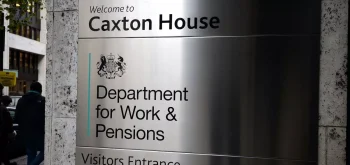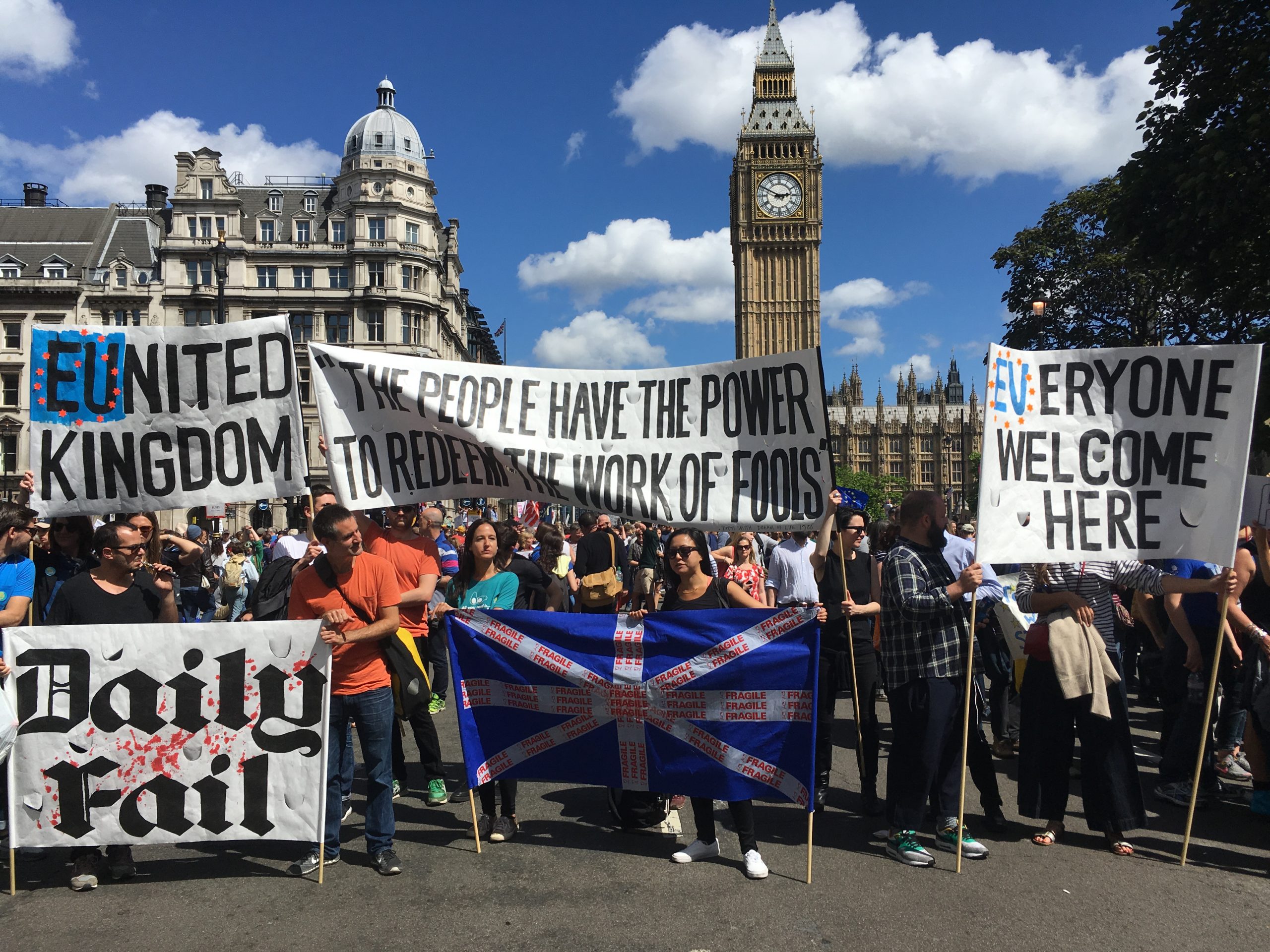Whilst running for the leadership of his party, Boris Johnson told fellow Conservatives he was ‘not attracted to arcane procedures such as the prorogation of Parliament’. Perhaps we should not be surprised that, once he became Prime Minister, his head seems to have turned to find attraction where he previously did not.
Last week, Johnson sought and was granted the approval of the Queen for Parliament to be prorogued from ‘no earlier than Monday 9th September and no later than Thursday 12th September 2019 to Monday 14th October 2019’. In response, the Speaker of the House of Commons described the move as a ‘constitutional outrage’, thousands protested across the country, and legal challenges were initiated in Belfast, Edinburgh and London.
The effect of the prorogation is to reduce the potential sitting days available to the House of Commons to pass legislation, including legislation to prevent the UK leaving the European Union without a deal on 31 October, by between five and 27 days (depending on whether Parliament chose to sit during the recess for party conferences). Importantly, once Parliament is prorogued – unlike when it is in recess – any unfinished business falls until the next session.
The government’s stated purpose in proroguing Parliament is to introduce its legislative agenda by way of a Queen’s speech. There can be little doubt, however, that its true motive is to curtail Parliament’s ability to legislate to prevent a no-deal Brexit.
Many commentators see the prorogation as a game theory machination of Dominic Cummings, the former campaign director of Vote Leave who now serves as senior adviser to the Prime Minister. Cummings’ respect for constitutional norms may be intuited by the fact that he was recently found in contempt of Parliament, an accomplishment he shares with Theresa May’s government.
Prorogation was certainly a provocative action by the government, which will have known that it would generate political opposition and legal challenge. Suspending Parliament to limit its ability to oppose government policy is deeply unconservative and constitutionally reckless, but – putting aside the politics – is it unlawful?
The monarch’s prerogative powers
The summoning, prorogation and dissolution of Parliament is a constitutional prerogative power belonging to the monarch, exercised on the advice of the Prime Minister. It is the advice to the Queen to prorogue Parliament which is the target of the legal challenges.
The courts have, since the Case of Proclamations in 1611, been prepared to determine whether a prerogative power exists: ‘the King hath no prerogative, but that which the law of the land allows him’. There is no question that the monarch’s power to prorogue Parliament exists, but next week the courts will be asked to determine whether the exercise of this power is justiciable; that is, whether its lawfulness can be challenged in – and potentially overturned by – the courts.
In 1985, in a case concerning a prohibition on employees of the intelligence services joining trade unions, the appellate committee of the House of Lords – then the highest court of appeal in the country – held that the royal prerogative can be subject to judicial review, the process by which the courts review the lawfulness of decisions or actions by public bodies, including the government.
This was confirmed more recently in 2008 in a case concerning the removal of the Chagos Islanders. The court saw ‘no reason why prerogative legislation should not be subject to review on ordinary principles of legality, rationality and procedural impropriety in the same way as any other executive action’.
These three broad grounds of judicial review – legality, rationality and procedural impropriety – allow decisions by public bodies to be overturned where: (1) they have acted beyond their legal powers; (2) a decision is so unreasonable as to be irrational; or (3) there is unfairness in the decision-making process. There is often a degree of overlap between different grounds.
The UK is comprised of three separate legal jurisdictions: England and Wales, Scotland, and Northern Ireland. Separate legal challenges have been initiated in each of these jurisdictions.
The Northern Irish case
In Belfast, Raymond McCord is seeking an injunction to compel the Prime Minister to reverse his advice to prorogue Parliament. McCord argues that a no-deal Brexit would breach the Good Friday agreement, and his lawyers have said he received assurances from the government that prorogation would not take place before 31 October.
Legal argument was heard by the Lord Chief Justice of Northern Ireland last Friday, and a full hearing will take place by no later than 6 September.
The Scottish case
The case at the Court of Session in Scotland has been brought by a cross-party group of over 70 parliamentarians, including Scottish National Party MP, Joanna Cherry, and the Liberal Democrat leader, Jo Swinson. It is being coordinated by The Good Law Project, founded by Jo Maugham QC, which brought the Wightman case to establish that Article 50 may be unilaterally revoked by the UK.
The claimants argue that the advice of the Prime Minister to prorogue Parliament was unlawful on the basis that it was motivated by a desire to restrict the time available to Parliament to hold the government to account and that it frustrated the will of Parliament.
Last week, the court refused the claimants’ urgent application for an interim order to prevent prorogation. The judge decided that there was no ‘cogent need’ for an interim order as a substantive hearing of the case was already due to take place on 6 September. The court then brought the date of the substantive hearing forward to 3 September.
The English and Welsh case
Gina Miller’s application for judicial review at the High Court in London is supported by former Prime Minister John Major, Labour’s Shadow Attorney General Shami Chakrabarti, and the Welsh Government. Miller has instructed the same legal team that represented her in the successful challenge to the Prime Minister’s proposed use of prerogative powers to make the Article 50 notification to the EU.
She described the prorogation as ‘a brazen attempt, of truly historical magnitude, to prevent the executive being held accountable for its conduct before Parliament’. It appears that Miller’s case will be argued on similar grounds to the Cherry case in Scotland: that the advice to prorogue for this period was given for the improper purpose of frustrating the will of Parliament.
Ultimately, it is likely that the UK Supreme Court will decide whether the government’s advice to the Queen to prorogue Parliament was unlawful and if so, whether any legal remedy should be granted.
Will the courts prevent prorogation?
In our system of parliamentary democracy it is Parliament, not the government, which is sovereign. If the courts consider that the true purpose of prorogation was to prevent Parliament enacting legislation which the government opposes, it is conceivable that the Prime Minister’s advice to the Queen will be held to be unlawful.
While the powers of the British state are divided between the executive (the government), the legislature (Parliament) and the judiciary (the courts), the executive is subordinate to – and may be overruled by – the legislature and the judiciary. An important aspect of the litigation may be the duty of candour and disclosure in judicial review, which will require the government to give a full and accurate explanation of its decision-making process, including the reasons underlying the decision to seek prorogation. If the government fails to comply with this duty, the court may draw inferences from this failure.
However, it may be significant that the period of prorogation sought by the government does not entirely deprive Parliament of an opportunity to prevent a no-deal Brexit, either by legislation or by bringing down the government by a vote of no confidence (and replacing it with a new government).
If the government had sought to suspend Parliament beyond 31 October, to remove rather than reduce Parliament’s opportunity to prevent a no-deal Brexit, in my view the courts would have been likely to find that advice to be unlawful. I suspect the government received advice to this effect from its own lawyers. That may, in part, explain why Johnson sought prorogation for the period that he did.
The government will argue that the exercise of the Queen’s prerogative power to prorogue Parliament is not justiciable, and is a matter of ‘high policy’ with which the courts should not interfere. The will of Parliament can only be understood through Acts of Parliament, and it is not clear that prorogation frustrates any specific provision of a statute. Will it be sufficient that prorogation frustrates the principle of parliamentary sovereignty?
Advising on the merits of judicial review challenges is not simple, particularly in politically sensitive cases where the courts may show deference to public body decision-makers due to their perceived expertise or democratic accountability. My view in this case, without having seen all of the written grounds of challenge, is that the prospects of this prorogation being ruled unlawful are slightly less than 50%. Those aren’t bad odds for Cherry, McCord, Miller and co.
This is primarily because Parliament will still have an opportunity – albeit with less time – to enact legislation or bring down the government. It is also possible that Parliament will seek to legislate to prevent the prorogation after it returns from its summer recess on 3 September, and action by the government or Parliament before the Supreme Court hears the case could shift the prospects of success in either direction.
It should also be noted that the courts could declare prorogation in these circumstances to be unlawful without granting any other remedy, particularly if a legal challenge becomes academic by the time it reaches the court.
It is, however, not difficult to imagine the Supreme Court taking up the mantle to defend parliamentary sovereignty from executive overreach, as it did in the original Article 50 litigation brought by Gina Miller.
What will happen next?
Brexit remains a political problem requiring a political solution. Parliament will eventually have to decide whether to leave the EU with a deal, leave the EU without a deal, or revoke Article 50. All that the courts can do is provide more time for Parliament to make this decision.
In recent days, government sources have mooted increasingly radical options to overcome the political impasse in a deadlocked House of Commons, including advising the Queen to refuse royal assent to a bill passed by Parliament or the Prime Minister refusing to step down after a vote of no confidence.
Either course of action would provoke a confrontation between the executive and legislature which would surely be resolved by the judiciary in favour of Parliament. For now, we are not quite in a constitutional crisis: the government is bending the law, but has not yet broken it.







Back from the looking glass